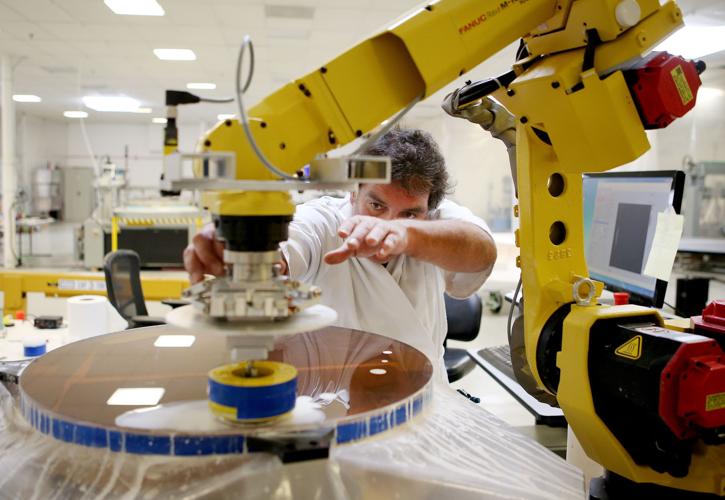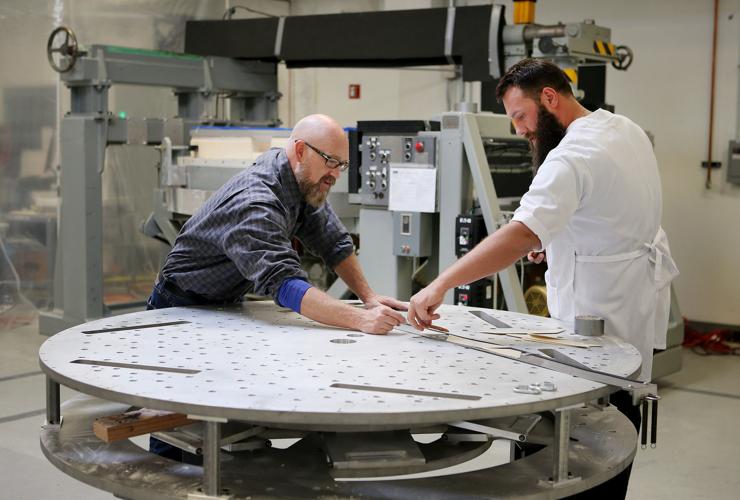The Tucson-based Arizona Optics Industry Association has merged into the Arizona Technology Council in a move to advance the state’s $3 billion optics industry.
“We want to make Arizona ground zero for all things optics around the world,” said Alex Rodriguez, Southern Arizona vice president for the council.
The 300-member Tucson optics group signed a collaboration agreement in mid-August that essentially merged the cluster into the statewide council.
An Arizona Optics Industry Committee has been formed within the Tech Council, including former members of the optics association board, to advocate for and promote the interests of the industry with optics-focused events and to help to influence legislative policy.
The council also plans to commission a new economic impact study of the state’s optics industry and craft a “road map” to move the industry forward, said Rodriguez.
The merger has the blessing of the cluster’s 1992 founder, Tucson optics-industry guru Bob Breault.
Breault, founder and president of Breault Research Organization, says the time has come for both him and the Arizona Optics Industry Association to open new chapters. A pioneer in the industry cluster movement who has helped set up more than 50 optics clusters worldwide, Breault is retiring, at age 75.
Today, optics-based technologies are embedded in everything from biotech instruments to cell phones to automotive systems, he said.
Rodriguez said the purpose of the merger is to “catalyze, convene and connect” companies and others.
“We’re shooting for stronger alignment, for better optics outcomes in Arizona,” he said.
Rodriguez said the Tech Council will use its reach and its skills at creating collaborative events to convene stakeholders in the optics industry statewide, noting that the council will have held about 170 events by the end of the year, including 70 in Tucson, ranging from networking mixers to a tech expo held here recently.
“We know how to bring people together,” he said.
The council also will bring its political clout to bear on issues important to the optics industry, Rodriquez said.
He noted that the council joined with optics officials during the last legislative session to help defeat a bill that would have expanded the use of electronic billboards, which create glare that affects astronomical observation.
Rodriguez said the council is still finalizing the scope of the economic-impact report and optics road-map study and working to identify funding sources.
The road map will likely include a so-called “SWOT” analysis of the industry’s strengths, weaknesses, opportunities and threats.
The group has been in discussions with the University of Arizona, which conducted an economic study of the optics industry in 2008, Rodriguez said.
Marty Valente, president of Arizona Optical Systems and an associate board member of the former optics cluster, sees the merger as an opportunity to partner with companies statewide to offer potential customers a complete, integrated array of goods and services.
“I think it’s something that will end up being very positive for us,” said Valente, who was director of optical engineering and fabrication at the University of Arizona’s College of Optical Sciences for nearly 19 years before co-founding Arizona Optical Systems in 2009.
While some collaboration has happened under the Tucson cluster, Valente says the Tech Council’s broader reach should bring a higher profile to the industry and result in more opportunities for businesses to work together.
“As a whole there’s so much we can do, so if the Tech Council can raise that awareness of what each of the other companies is capable of, and then have some general oversight of what kind of partnerships make sense, that can do nothing but help us,” he said.
Valente served three terms on the academic board of the optics cluster in Rochester, New York — long a rival with Tucson for the title of the nation’s biggest optics tech center.
He noted that the Rochester area earlier this year won $500 million in state economic-development funding, much of it earmarked for optics business development.
“Something like that here could really bring us forward and create a huge industrial base,” he said.
Breault said he’ll keep only an advisory role with the Tech Council optics committee and plans to retire soon from the helm of his company, which provides light-analysis software and related technology.
He looks forward to retirement, but doesn’t plan to stop his cluster work entirely.
Through his work with TCI Network, a nonprofit industry cluster resource group based in Spain, he plans to work on a program to bring cluster development to underdeveloped countries in Africa.





